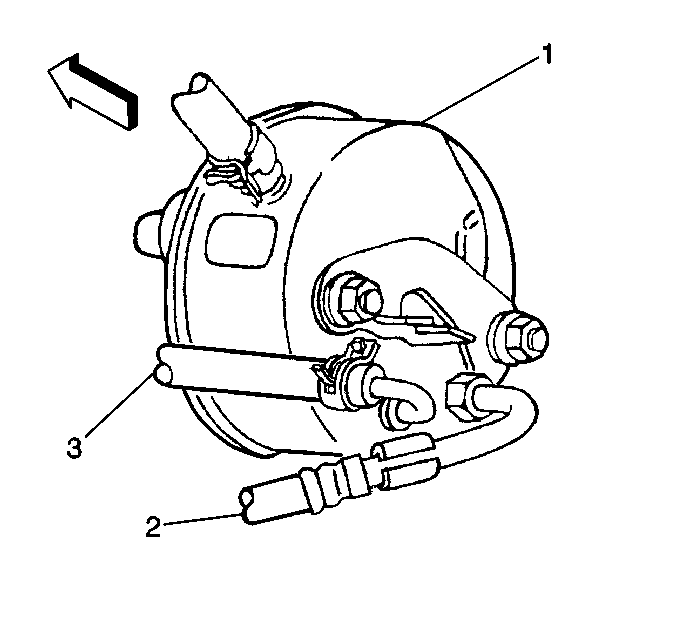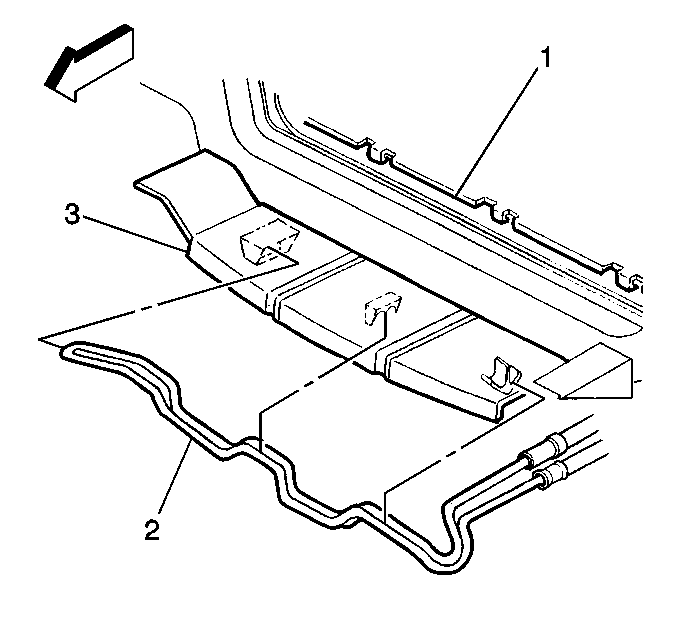The hydraulic power steering system consists of the following
components:
Power Steering Pump

The power steering pump
(1) is a vane type, non-submerged design.The reservoir is separate from the
housing and the internal parts. The reservoir is mounted on the cowl
next to the wiper motor.
There are 2 bore openings at the rear of the pump housing. The larger
opening contains the following components:
The smaller opening contains the following components:
| • | The pressure hose discharge fitting |
The pressure relief valve inside the flow control valve limits the pump
pressure.
Power Steering Gear
The power steering gear contains a recirculating ball system that acts
as a rolling thread between the worm shaft and the rack piston. The worm
shaft is supported by a pre-loaded thrust bearing and two conical thrust
races at the lower end. A bearing assembly in the adjuster plug supports
the shaft's upper end. When the worm shaft is turned right, the rack piston
moves up in gear. Turning the worm shaft left moves the rack piston down
in gear. The rack piston teeth mesh with the sector, which is part of
the pitman shaft. Turning the worm shaft turns the pitman shaft, and the
pitman shaft turns the wheels through the pitman arm and the steering linkage.
The control valve in the steering gear directs the power steering fluid
to either side of the rack piston. The rack piston converts the hydraulic
pressure into a mechanical force. If the steering system loses hydraulic
pressure, the vehicle can be controlled manually.
Power Steering Cooler Pipe

The power steering cooler
pipe mounts along the lower radiator support (1). In this location, air can
circulate freely around the pipe. As the vehicle is driven, heat dissipates
from the power steering fluid as it flows through the pipe.
A clip mounts the pipe to the radiator support (1) and holds the pipe
in position. The cooler hoses that supply fluid to the cooler pipe are attached
to the pipe with hose clamps.


